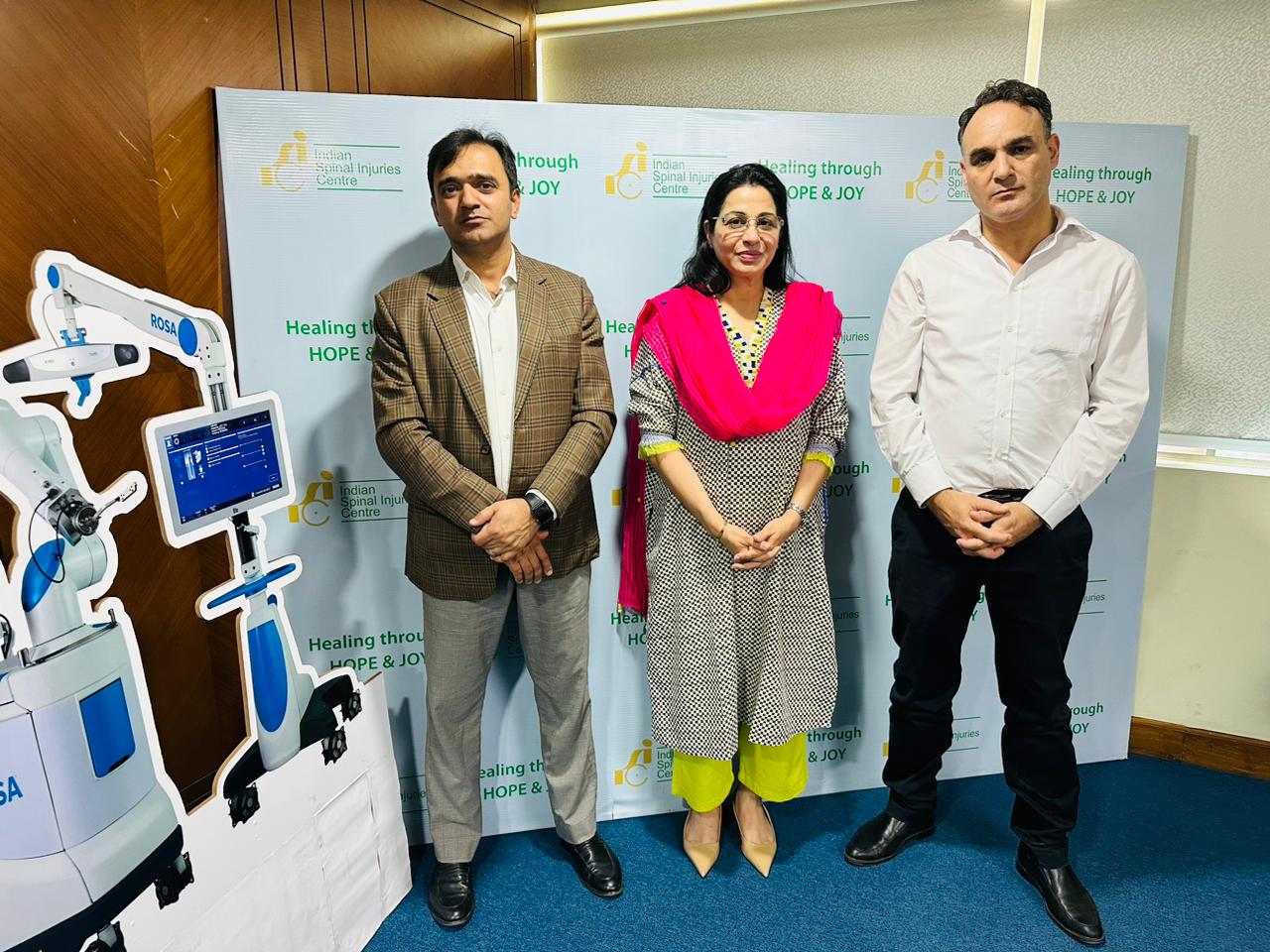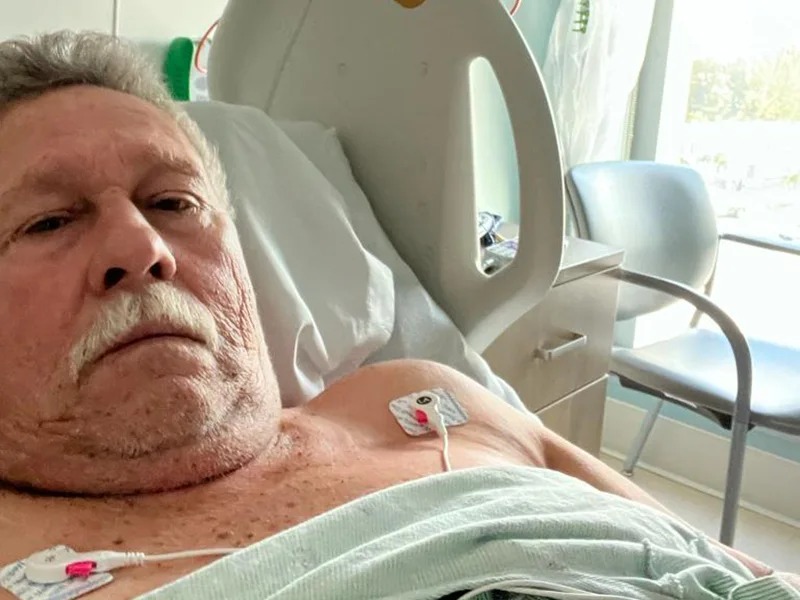Indian Spinal Injuries Centre Launches Robotic Knee Replacement: A Transformative Leap in Orthopedic Surgery
The Indian Spinal Injuries Centre (ISIC), today announced the launch of the much-anticipated Department of Robotic Joint Replacement, a transformative advancement in the world of orthopedic surgery. The launch was preceded by several successful knee

The Indian Spinal Injuries Centre (ISIC), today announced the launch of the much-anticipated Department of Robotic Joint Replacement, a transformative advancement in the world of orthopedic surgery. The launch was preceded by several successful knee robotics surgeries and excellent patient outcomes with this advanced navigational technology. ISIC declared that the advent of knee robotics signifies a significant breakthrough for patients suffering from knee problems.
According to some studies, with over 15 crore Indians grappling with knee issues, and 4 crore patients in need of total knee replacement (TKR), the burden of knee ailments in India is staggering. This condition, amplified by genetic predisposition and lifestyle factors, leads to a knee arthritis incidence 15 times higher than in Western nations. In India, merely 2 lakh knee replacement surgeries are performed annually.
Announcing the launch and new milestone, Mrs. Bholi Ahluwalia, Chairperson of ISIC said, “We, at ISIC, always strive to adopt cutting-edge technologies for better clinical outcomes. With the launch of cutting-edge knee robotics, ISIC would be performing thousands of knee replacements with newly introduced robotic knee replacement procedures each year and would sincerely strive to bridge the existing gap.”
ISIC takes robotic knee replacement surgery to the next level with added precision, accuracy, personalization, and the Enhanced Recovery After Surgery (ERAS) technique, which allows patients to start walking within hours of surgery.
“We employ the latest US FDA-approved anatomically accurate personalized implants, ensuring a natural knee feeling. Our multidisciplinary team approach ensures comprehensive patient care, with physiotherapists assessing individual needs and follow-up appointments scheduled for continued care,” said Dr. Deepak Raina – Head of Department and Chief of Hip Replacement Services, ISIC.
“The Rosa Knee robotic system, utilized at ISIC, customizes knee replacements for each patient’s anatomy, potentially resulting in a more natural knee feeling in the long run. With reduced risk of complications and improved patient outcomes, ISIC is poised to redefine knee replacement surgery in India,” added Dr Raina.
Robotic knee replacements offer a new paradigm of care and it comes with several benefits such as accurate implant positioning, personalization, and surgeon-led procedures leading to better functional outcomes, shorter recovery times, and hopefully longer-lasting results.
“While the robot plays a crucial role in enhancing precision, the orthopedic surgeon maintains full control. Knee robotics enhances knee joint alignment, allowing patients to regain a more natural range of motion for daily activities and an active lifestyle. Reduced complications and misalignments lower the need for revision surgery, resulting in fewer surgical interventions for patients,” explained Dr. Vivek Mahajan, Senior Consultant Orthopaedics – Joint Replacement and Arthroscopy Services, ISIC.
According to the experts, the surgery is not performed by a robot! One of the common misconceptions about Robotic Knee Replacements is that the surgery is done 100% robotically. That is simply not the case. While the procedure is assisted by a robotic arm or device, an orthopedic surgeon is still in control. The robot’s only job is to help the surgeon perform with greater precision. Real-time, intra-surgery mapping helps create a 3D model of the patient’s knee. The robotic software then allows surgeons to plan — how to custom fit and size implants (artificial knee components) on a case-to-case basis. Finally, the execution of the plan with the robotic arm/device is close to flawless, minimizing tissue damage in the knee.
Sharing his experience Mr Harbans, 50, who recently underwent robotic total knee replacement surgery said, “I was in traumatic condition for the last couple of years. Initially, I was planning to undergo traditional knee replacement surgery, but on the advice of Dr Mahajan who explained the benefits of this advanced procedure, I opted for that. Both my knees were replaced using robotic technology and minimally invasive techniques and within two weeks I started walking without support. It was really amazing. Hopefully, I am going to enjoy a normal and active life as earlier.”
“If someone is a good candidate for traditional knee replacement surgery, he/she is a good candidate for Robotic Knee Replacement. It comes as a boon for those who are in their 40s and 50s and fall victim to severe knee problems. At ISIC, we strongly believe in delivering Successful Knee Replacement that should last a lifetime. We have a highly experienced team of surgeons who are extensively trained in knee replacement and robotics from all over the world,” added Dr Mahajan.
The number of joint replacements in India is set to grow at the highest rate in the world from 2020 to 2026. Cutting-edge technologies such as robotic knee replacement would play a catalyzing role.






